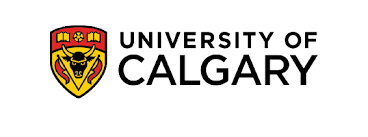University of Calgary gets first-ever federal Equity, Diversity and Inclusion award
The University of Calgary has been recognized for its commitment to equity, diversity and inclusion (EDI) and Indigenous engagement by the federal government. On April 27, UCalgary was named one of 10 institutions to receive a Dimensions: equity diversity and inclusion Canada award in the program’s inaugural year.
The main objective of the Dimensions program is to foster transformational change within the research ecosystem at Canadian post-secondary institutions. This is Canada’s first national-level institutional equity, diversity and inclusion award for the research ecosystem. UCalgary received a Dimensions Construction award, which is the highest award conferred by Dimensions in its inaugural year.
Dimensions Construction
“This is a moment of celebration for our institution as we commend this outstanding accomplishment,” says Dr. Ed McCauley, president and vice-chancellor. “This recognition is an external validation of our long-standing commitment to EDIA. The analysis that took place as part of the Dimensions program of work will be an incredibly important input for the Presidential Task Force on EDIA to consider as they work with our community to develop UCalgary’s first ever EDIA Strategy and Action Plan over the next year.”
The Dimensions program was launched in early 2019 with a charter that declares, “Diversity is one of Canada’s strengths, which positively contributes to research excellence” and that the Canadian “post-secondary research community has the greatest potential to thrive when members experience equitable, inclusive and unbiased systems and practices.” To date, the charter has been endorsed by over 140 Canadian post-secondary institutions and organizations, including UCalgary.
In August 2019, UCalgary applied and was selected to be one of 17 institutions to participate in the national pilot to co-develop the Dimensions recognition award program. The outcome of the pilot was a four-stage award program that aimed to be “inclusive by design,” and required applicant institutions to provide an evidence-based self-assessment of their institutional commitment to improving EDI, and their action plan for the future.
The Dimensions program is now widely celebrated as an ambitiously inclusive ‘made-in-Canada Athena SWAN,’ referring to the Athena Scientific Women’s Academic Network (SWAN) charter, established in the United Kingdom in 2005. It is one of the leading international programs promoting EDI in higher education, along with Athena SWAN and the Race Equality Charter in the United Kingdom, Athena SWAN in Ireland, SAGE in Australia, and SEA Change in the United States.
The UCalgary team led by Dr. Malinda Smith, vice-provost and associate vice-president research (equity, diversity and inclusion), applied for and received a Dimensions ‘Construction’ award. The Construction designation reflects that the institution is addressing EDI and accessibility in a strategic and co-ordinated way, has evidence of gaps and needs, assets and obstacles, and is committed to creating cultural change for the campus community.
“Guided by two foundational principles, ‘nothing about us, without us,’ and ‘one-size-does-not-fit-all’, we completed a Dimensions institutional self-assessment and developed an action plan that, for the first time, charted priorities for creating equitable pathways and parallel paths for members of equity-deserving groups in our community,” says Smith. “This is an important milestone in our EDI journey at the UCalgary, and I am grateful for the hard work of everyone engaged in our Dimensions application work including in the context of the pandemic and remote work.”
The Dimensions application creation process was led by Smith as chair of the Dimensions Executive and Steering Committees, and Self-Assessment Team. Over 70 members of the campus community were involved in the application, many as part of critical working groups. The application, titled Our Journey Co-Constituting an Evidence-Based Dimensions Equity, Diversity and Inclusion Action Plan, was submitted in October 2022 after a two-year process.
“The vital role our Equitable Pathways, Parallel Paths and Intersectionality Working Groups played in our self-assessment and action plan creation were a key differentiator of our evidence-based pathways to access and success outlined in our Dimensions application,” says Smith. “Our EDI data team produced the most comprehensive disaggregated data ever collected and analyzed at the University of Calgary. The working groups mapped the experiences of members of each historically underrepresented group within the research ecosystem and the university more broadly, and identified the specific barriers and obstacles to full participation of Indigenous Peoples, LGBTQ2S+, persons with disabilities, visible/racialized persons, and women and nonbinary persons.”
UCalgary’s Dimensions Action Plan will ladder up into the Presidential Task Force on Equity, Diversity, Inclusion and Accessibility. The plan builds upon ongoing EDI and Indigenous engagement initiatives and strategies, including ii’ taa’poh’to’p, the Research and Teaching Awards Equity, Diversity, and Inclusion Plan, the Inclusive Excellence Cluster Hiring Initiative, and the EDI Dashboard and EDI Data Hub, among others.
“Equity, diversity and inclusion and Indigenous engagement are essential to creating a welcoming and vibrant research-intensive university where all of our community can flourish,” says Dr. William Ghali, vice-president (research). “By fostering an inclusive research environment, we are able to attract and retain top talent, and produce research that is relevant and impactful. I extend my thanks to members of the UCalgary team and look forward to the journey ahead, and all that we will accomplish together.”
“At UCalgary, we believe that diversity is a strength,” says Dr. Penny Werthner, interim provost. “Our commitment to equity, diversity and inclusion and Indigenous engagement must be embedded in everything we do, in research, teaching, service and administration, and community engagement. We are proud of the progress we have made, and we will continue to work towards creating a more inclusive future for everyone.”

